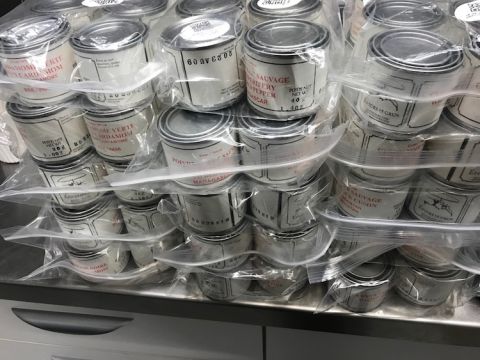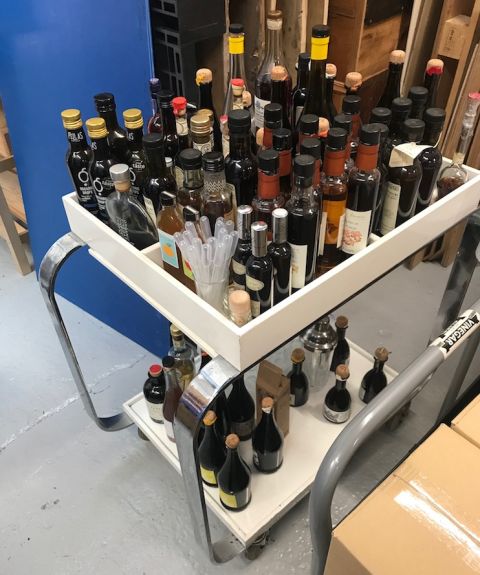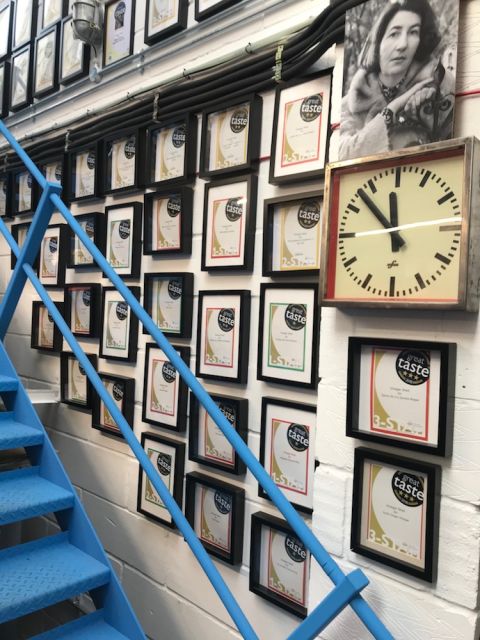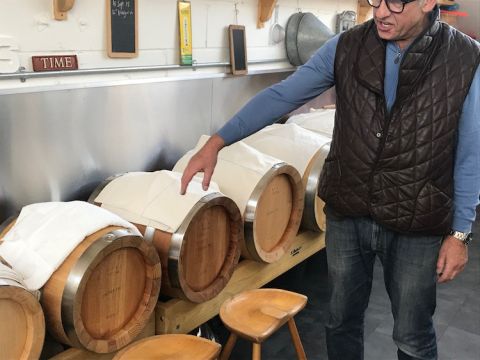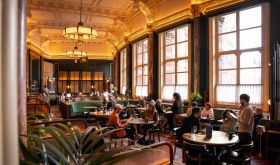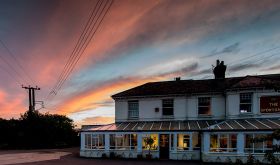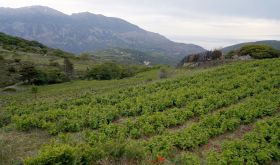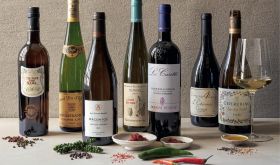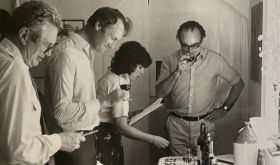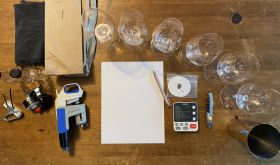I first met Andy Harris many years ago when we were both in different but related professions.
It was in the 1980s when I was a restaurateur at L’Escargot in Soho and Harris was quite a regular customer. We frequently chatted and realised that a love of good food was a common bond.
Harris was then, and until 2016, a journalist/editor who has specialised in food stories, a combination of talents that gave him a distinctly cosmopolitan outlook on the food world.
With this came the advantage of considerable travel. Harris lived in the US for a while and then Australia, where he worked closely for the Jamie Oliver organisation before deciding that after 30 years he had probably exhausted what had begun as a lucrative seam of activity. With magazines in decline and journalistic rates falling, Harris decided to take the plunge and three years ago at the age of 59 he started his own food business.
According to his business card, Harris is today the ‘CVO’ of the Vinegar Shed, CVO standing for Chief Vinegar Officer. What this card does not disclose is that the Vinegar Shed is still very much a one-man business. Harris receives all the raw materials; processes the orders; writes out all the invoices; packs all the orders with infinite care; and hands them all to his couriers for delivery.
As I was to discover, the Vinegar Shed occupies a particularly obscure location. The Silicon Business Centre may sound smart but, wedged as it is between the Perivale Park Industrial Estate and the famously preserved art deco Hoover Building in west London, in reality this is a collection of disused sites for rent, car repair shops and several Middle Eastern cafés. One of these is close by with a sign outside that reads ‘this café closed 12–1’! Right beside it and opposite a unit that supplies corner stores is the Vinegar Shed.
Physically, his unit is quite small but Harris has significantly increased it by putting in a metal staircase that leads up to smaller mezzanine floor that incorporates his office and, via a bolted door, his magic kingdom. In fact, I have never seen Harris as happy as he is today; he is like the proverbial kid in a candy store, although this one smells rather different.
The ground floor has shelves everywhere that are packed with his goods. Vinegars made by Nathalie Lefort at La Guinelle in a small hamlet above Port-Vendres in south-west France; vinegars from Italy produced by Trentino wine producers Pojer e Sandri; and also quite a few bottlings of vinegars made by the sisters at the Solan monastery in La Bastide-d’Engras in the Gard department of France. There is also Harris’s choice of saffron from a couple living high up in the Spanish Pyrenees.
Then there are the numerous spices and herbs, all of them in small, polished tins, the ingredient that provided my reintroduction to Harris. It was after a delicious first course of veal sweetbread with cumin that I had enjoyed over dinner at the recently opened Trivet restaurant near London Bridge that its chef, Jonny Lake, mentioned that Harris had been the supplier, and not just of this but of the vinegar that made such a distinctive impact on Jancis’s chicken main course.
These spices are the result of Harris’s time in the US, where he came across the range offered by Épices de Cru, the highly regarded firm run by Ethné and Philippe de Vienne, who are based in Montreal, Canada. These are truly delicious and will make a fundamental difference to even the most professional cook’s dishes. Also on these shelves is the range of salt that is gathered by Cédric Pennarun on the west coast of Brittany under the Grand Cru de Batz label as well as a large range of canned seafood from the Arroyabe family based in the fishing village of Bermeo in Basque country.
Fortified by a coffee, we moved to the front of the ground floor where Harris keeps his tasting trolley. This is a two-level affair on wheels, crammed with open bottles, that once belonged to his close friend the late restaurateur Antonio Carluccio. ‘This used to be his grappa trolley', Harris explained with a sad smile.
Via a series of small, clear glasses, Harris let me taste a large range of his vinegars. Most notable of those I tried were the rosé and white Pineau des Charentes vinegars made by Philippe and Françoise Fleuriet in the Cognac region; the quince vinegar produced by Pojer e Sandri; and, sweetest of all, a prune vinegar, also produced by the obviously versatile Fleuriets. Harris confessed that he invariably serves this poured over vanilla ice cream.
It was then time to follow Harris up the stairs, past a photo of his late mother that hangs next to the many Great Taste awards won by the Vinegar Shed, through his rather untidy office, and into what can best be described as Harris’s holy of holies. Here, he makes vinegars to order and one day hopes to make his own balsamic vinegar.
The two vinegars he has so far made to order are what he describes as a ‘marvellous’ mandarin vinegar and a ‘bodacious’ blood-orange vinegar. Both are light and fruity and use Sicilian fruit macerated in Catarratto white wine vinegar as their base.
Harris’s experiments with producing his own balsamic vinegar are far more time-consuming and expensive. Under the far wall is a range of barrels from Francesco Renzi, the barrel maker of Modena, a range that must have cost a pretty penny (Harris did confess that he has sunk his entire life savings into the Vinegar Shed).
There must be about 20 of them sitting in their wooden rounds and with a piece of cloth over the otherwise open hole in the top. These are gradually being brought to life via a series of careful treatments so that they can begin to produce something as close to the balsamic vinegar that is made in Modena as possible. The barrels, all clearly marked Renzi on the outside, have been bought from this company that dates back to 1564. The conditions are pretty perfect, the barrels quietly resting under the roof that has a number of glass panels in it so that the room can attract the variations in temperature that is one of the prerequisites for successful vinegar making. The Vinegar Shed’s first balsamic vinegar should be available in 2022.
In the interim Harris will keep on selling to chefs and to the public. He was just back from an ‘exhausting’ Christmas fair and will continue to beef up his sales via his website, from which he ships to anywhere in the world. He gets on well with Ashley Palmer-Watts, the talented chef of Dinner at the Mandarin Oriental Hotel in Knightsbridge, as well as Jeremy Lee of Quo Vadis, Jonny Lake of Trivet, and Jackson Boxer of Orasay, who are all, like many chefs today, part of a movement that relishes the harmonious and beneficial effects of top-quality vinegar. ‘Chefs are critically important to my business', Harris confessed, ‘because they invariably buy big and they buy regularly.’
The Vinegar Shed Unit 26-5A Silicon Business Centre, 26 Wadsworth Road, Perivale, London UB6 7JZ; tel +44 (0)7854 892065


